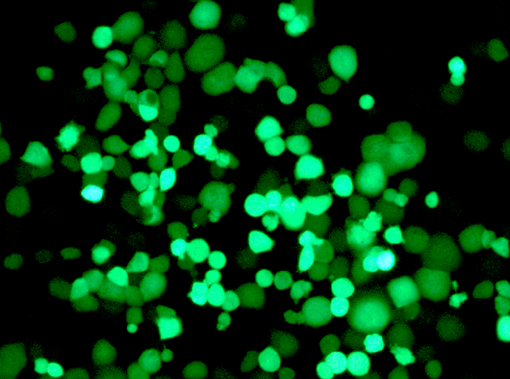Today I would like to share with you a very important news: “Spanish scientists create viruses that attack the tumor cells selectively”.
Effectively, Scientists from the August Pi i Sunyer Biomedical Research Institute (IDIBAPS) and the Biomedical Research Institute (IRB), in Barcelona, have succeeded in getting that some genetically engineered viruses attack tumor cells selectively, without affecting their healthy cells.
The work, published in the journal Nature Communications, is the result of the work of a doctoral thesis of Eneko Villanueva and it has been co-led by Cristina Fillat, chief of the genic therapy and cancer, from the group of the IDIBAPS, and Raúl Méndez, a researcher of the IRB.
According to Mendez, conventional cancer treatment can cause unwanted side effects due to poor selectivity and, to avoid, the researchers seek new treatments capable of efficiently eliminating cancer cells and preserving healthy ones.
One of the new therapies, in cancer, is based on the development of oncolytic viruses, ie, viruses modified to only infect tumor cells.

Tumor cells infected by virus
Genetically engineered viruses have been created, in the last few years, to maximize their anti-cancer effect, but as the virus's potency increases, so the associated toxicity does it.
The IDIBAPS and IRB researchers have developed an innovative approach, to provide an adenovirus (an Adenovirus is a non-encapsulated double-stranded DNA virus, which can lead to infections in the airways, conjunctivitis, cystitis, haemorrhages and gastroenteritis), with high specificity, against tumor cells.
"We have taken advantage of the different expression of a type of protein, CPEB, in normal and tumor tissues", Mendez said.
The CPEBs are a family of four proteins, joined to the ribonucleic acid (RNA) --the molecules that carry information from genes, to synthesize proteins--, that control the expression of hundreds of genes and maintain the functionality and capacity of tissue repair, in normal conditions.
When the CPEBs become unbalanced, they change the expression of these genes, in the cells, and contribute to the development of pathological processes such as cancer.
"We have focused on the double imbalance of two of these proteins, in healthy tissues and tumors: on the one hand, we have CPEB4, which, in previous studies, has shown that it has high expression, in cancer cells, and it is necessary for tumor growth, and, on the other, CPEB1, highly expressed in normal tissue and lost in the tumor", Méndez added.
"We have taken advantage of this imbalance, to make a virus that only attacks the cells with high levels of CPEB4 and low of CPEB1, which only affects the tumor cells, ignoring the healthy ones", the researcher summarized.
Cristina Fillat has specified that, in this research, they have worked with "adenovirus, a family of viruses that can cause respiratory infections, urinary tract infections, conjunctivitis or gastroenteritis, but possess characteristics that make them very attractive to be used as therapy against Tumors".
To modify the genome of this virus, the researchers inserted sequences that recognise the CPEB proteins, in key regions, for the control of viral proteins, and verified their activity of in vitro models of pancreatic cancer and observed a growth control of the Tumor, in mice.
The oncoselective viruses created are very sophisticated, because they are activated for CPEB4, but are repressed for CPEB1, whereby the researchers achieved attenuated viral activity, in normal cells, while, in the tumor cells, the virus potency is maintained or even increased.
"When the modified viruses enter the tumor cells, they replicate their genome and, on leaving, destroy the cell by releasing more particles of the virus, which in turn can infect more cancer cells", said Fillat, who stressed that "This new approach is very interesting, since it is a therapy that is selectively amplified in the tumor itself".
The researchers now seek to combine this treatment with therapies, that are already in clinical practice or in very advanced stages of development, to seek synergies and be more effective in controlling the tumor.
I hope that researchers will continue to advance in the possible combination of this innovative treatment, with some therapies, already existing in the clinics of Spain.
Until my next post, kind regards,
Luis.
Sponsored by Costaluz Lawyers.
Please click below:
